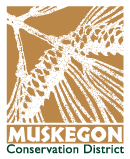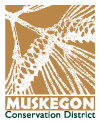EXOTIC / INVASIVE SPECIES
It has been estimated that more than 209 invasive species have been either intentionally or accidentally introduced to the Great Lakes basin. Invasive species have negative ecological, economic, social, and public health impacts. They have been widely identified as a serious threat to global and local biodiversity. Once established, they often out-compete native species for limited resources such as food and habitat, alter and damage existing habitat, and displace native species. The displacement of native populations by invasive species alter food webs, nutrient dynamics, and natural processes of native and local fauna and flora. It has been recognized that invasive species are a significant factor in the decline of over 47% of the federally listed endangered species. Their impacts are found in our waterways, along our roadsides, in our wilderness areas and in both rural and urban communities. The cost to control invasive species and the damages they inflict upon public and private property and natural resources in the U.S. has been estimated between $137 to $210 billion annually. The Muskegon Conservation District recognizes these threats and is working to limit the spread of existing invasions and limit their associated impacts.
Muskegon Conservation District is a licensed registered pesticide application business with Michigan and is able to provide technical assistance, identification, and control of small populations of non-native terrestrial and aquatic invasive species through our Exotic Species Control Program. Services for the Exotic Species Control Program are funded by fees paid by applicants, which include assessments, supplies, and control. Cost-share funding may also be available at various times to landowners for treating infestations of un-wanted terrestrial and aquatic exotic species and restoring natural habitats. If interested in having District personnel visit your site please download and fill out our Cooperator Agreement and contact us to set up a time for the site visit.
Interested in receiving treatment? Please fill out our Invasive Contractual For-Hire form here!
High Priority Species:
• Phragmites
• Narrowleaf & Hybrid Cattail
• Japanese Knotweed
• Oriental Bittersweet
• Japanese Honeysuckle
• Spotted Knapweed
• Black Locust
• Garlic Mustard
• Autumn Olive
• Tree of Heaven
• Purple Loosestrife
Further information about invasive and exotic species can be found on the Michigan Department of Natural Resources Invasive Species site.
For quick informative PDF files on invasive Phragmites documents click A Guide to the Control and Management of Invasive Species and A Landowner’s Guide to Phragmites Control.

